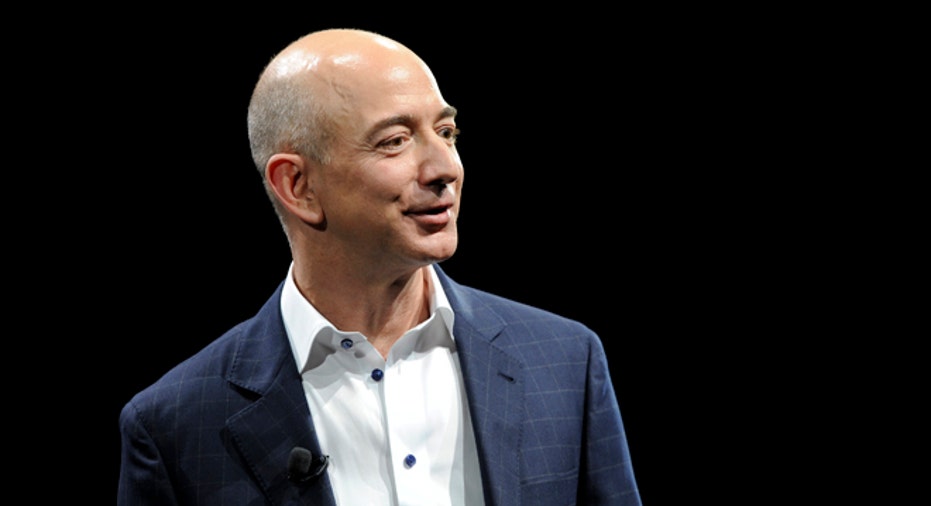Tech Giants Bet Big on Artificial Intelligence

As far back as I can remember, artificial intelligence (AI) was always going to be the next big thing to revolutionize the way we live and work. Funny thing is, that’s still true. And yet, at this week’s Code Conference, AI was the hot subject for CEOs of Amazon, Google and IBM. Which begs the question, is AI finally real, or is it destined to remain the perpetual technology of the future?
I’ll never forget how cool it was to watch the crew of Discovery One engage in witty dialog with the Hal 9000 computer in 2001: A Space Odyssey. That was 1968. And yes, I saw it on the big screen, since that was practically the the only way to see a movie, back then.
By the time The Terminator came out in 1984, researchers at Carnegie Mellon, Harvard, MIT, Stanford, Yale and SRI (Stanford Research Institute) had been working on machine intelligence for decades. And advanced programming languages like Lisp, parallel computers and expert systems were already commercially available.
But aside from some games, defense applications, mail robots, search algorithms, and a vacuum cleaner or two, consumers haven’t had much to get excited about on the AI front. Sure, it was cool to see IBM’s Watson cognitive computer beat Ken Jennings at Jeopardy, but how useful is that to you and me? Not very.
That same year, however, Apple snuck the first voice controlled intelligent assistant, Siri, into its latest smartphone. Siri was actually a spinoff from SRI that was acquired by Apple just prior to the iPhone 4S launch. And behind that human-sounding voice was decades of combined AI research at more than 20 universities. In fact, the cognitive assistant program was originally funded by the U.S. Defense Advanced Research Projects Agency (DARPA).
Granted, Siri had quite a few limitations, but its potential to make it easier for smart devices to deliver information in a more human way was apparent. Unfortunately, after five years, Apple has done little to advance the cause, a few additional features notwithstanding. That opened the door for competitors Google Now and Microsoft Cortana.
Meanwhile, Amazon leapfrogged everyone last year with Echo, a voice-controlled speaker system based on the Seattle company’s own smart software, Alexa. Echo is capable of playing music, reading the news, providing weather and traffic information, reporting sports scores and schedules, and controlling a host of smart home functions.
At the conference, Jeff Bezos said that Alexa and Echo have been four years in the making, and that Amazon now has more than 1,000 employees on the team. Amazon’s advantage is that it knows so much about your habits and tastes – especially if you’re a member of its Prime service – that Alexa is remarkably knowledgeable … and useful.
Talking about AI, Bezos said, “It’s hard to overstate how big of an impact it’s going to have on society over the next 20 years.”
Another company that knows more about you than it probably should announced its own Echo competitor, Google Home, at its annual developer conference in May. Google’s algorithms capture your search, location and shopping history, among other things. Scheduled to launch later this year, Home will no doubt be a capable rival to Echo.
And don’t forget, there’s plenty of AI functionality in Google’s self-driving car. It’s currently working with Chrysler on a fleet of autonomous minivans.
IBM has taken a different approach than its consumer-oriented counterparts, however. It’s made Watson available as a cloud service for healthcare and weather, with plans to expand into education, financial services and other segments where its cognitive abilities and vast stores of information can facilitate smarter decision making.
Also at the Code Conference, IBM CEO Ginni Rometty said, “There’s no doubt in my mind that cognitive AI will impact everything in our lives in five years.”
I wouldn’t count Apple out just yet, though. Its June 13th WWDC is right around the corner. Rumor has it that the Cupertino giant may unveil iOS 10, including a major upgrade that will enable Siri to handle follow-up questions in context. It’s also likely that the smart assistant will eventually be ported to the Mac OSX platform, and that Apple will provide an SDK for third-party developers to enable Echo-like functionality.
The concern for Apple is that it may not be as well positioned as Amazon and Google in the AI space because it places a high priority on user privacy and security, so it doesn’t have hordes of cloud-based information at its disposal, as its rivals do. How Apple plans to deal with that issue remains to be seen.
Of course, there’s also that not-so-secret autonomous electric car project we keep hearing about. Apple has a habit of entering mature markets with game changing products.
Whether we call it AI, cognitive computing, or smart assistants, one thing’s for sure. It’s real. Tech giants are betting big on it. And we’re just beginning to scratch the surface of what AI can do to enhance our lives and our work … if only we can get these genius computers to actually hold a conversation.



















